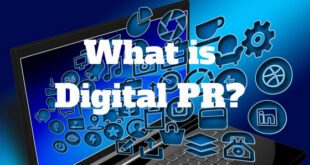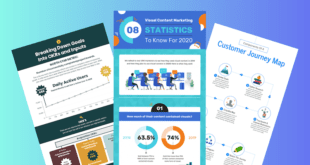Introduction to Digital Marketing
Digital marketing, or digitalni marketing in English, uses computers and the internet to get the word out about goods, services, and brands. It is a key part of modern business strategies for personalizing and reaching target audiences. We will look at digital marketing’s main parts, strategies, and how it has changed marketing in this in-depth study. Digital marketing isn’t just a trend; it’s a big change in how companies and customers work together in the digital world.
Components of Digital Marketing
Digital marketing reaches out to both new and old customers through a lot of different online channels. To reach people, it uses the internet, cell phones, social media, search engines, email, and other digital tools. As new technologies and consumer habits come out, this field changes.
Content Marketing
Content marketing is the first step in digital marketing. Online marketing is based on content. It means making and sharing content that is useful, consistent, and relevant to a specific audience. You can use blog posts, articles, videos, infographics, podcasts, and other things as content. Content marketing helps people learn, fixes problems, and gains their trust. Customers will be more loyal to the brand, and companies will be seen as experts.
Search Engine Optimization (SEO)

SEO is also very important for online marketing. SEO makes a website better for search results on Google, Bing, and Yahoo. It is used to do keyword research, content optimization, backlink building, and technical SEO improvements. Search engines should show a website more often, which should bring in more free traffic.
Paid Advertising
Paid ads are also part of digital marketing. There are PPC, display, social media, and other types of ads. Businesses can promote their goods or services on the internet by bidding on keywords or targeting specific groups of people through paid advertising. This method quickly brings in traffic and gets results. Ads on Google and Facebook are very important here.
Social Media Marketing
Social media is used all over the world, so digital marketing includes social media marketing. It involves making and sharing marketing and branding content on social media. Social media marketing means getting people to follow you on sites like Facebook, Instagram, Twitter, LinkedIn, and more, and then interacting with them. It helps people know about your brand, interact with it, and buy directly from you.
Email Marketing
Email marketing can be used in many ways for digital marketing. Email campaigns are a direct way for businesses to reach their customers. Email marketing is very personalized when you use segmented lists and targeted messages. For ads, newsletters, new product information, and talking to customers. Email marketing campaigns that work well get more sales and keep customers coming back.
Affiliate Marketing
Affiliate marketing is a type of digital marketing that is based on results. It means working with people or other businesses (called “affiliates”) to promote a business’s goods or services in exchange for a cut of the sales those efforts bring in. Affiliate marketing works for both businesses and affiliates. Businesses can reach more people, and affiliates can make money by promoting the businesses.
Influencer Marketing
In digital marketing, influencer marketing is very popular. Influencer marketing is when you work with people who have a lot of followers online and can persuade people to buy something. Businesses can use the credibility and reach of industry influencers to get the word out about their goods and services. On Instagram and YouTube, this kind of advertising is common.
Mobile Marketing
Due to the popularity of smartphones and tablets, mobile marketing is aimed at people who use them. Mobile marketing includes ads, websites that work well on phones, apps, SMS, and marketing based on location. Businesses need to make their marketing strategies mobile-friendly to reach more people as the number of people who use mobile devices grows.
Video Marketing

There is a lot of video marketing online. Video can both entertain and teach people. It’s used to teach, show off products, get customer feedback, and tell stories about brands. YouTube is important for video marketing, and social media sites are adding video features to keep up with demand.
Data Analytics in Digital Marketing
Digital marketing works better with data analytics. Digital interactions generate a lot of data that helps businesses figure out how customers act, what they like, and how well their marketing campaigns are working. With digital marketing analytics, businesses can figure out how much their marketing is bringing in, tweak their strategies, and make improvements based on data.
Remarketing
Remarketing, which is also called retargeting, is a way to get people who interacted with a brand but didn’t buy to interact with it again. Users who are interested in these ads see them while they browse the web or use social media. Remarketing can get potential customers interested again and increase sales.
Artificial Intelligence and Machine Learning
More and more, AI and ML are being used in digital marketing strategies. These technologies help businesses automate, predict, and tailor their services to each customer. AI and ML can make digital marketing campaigns more relevant and effective.
Personalization
Personalization is a big part of digital marketing. Digital channels let you market to specific users or groups of users. Content is delivered at the right time and tailored to each customer based on data and insights. Improves the experience of users and keeps customers interested.
Voice Search Optimization
A part of SEO called voice search optimization has grown along with voice search and smart speakers. The goal of voice search optimization is to make content and website structure better for voice queries. Companies need to change their digital marketing strategies to keep up with the changing way people search as more people use voice-activated devices like Apple’s Siri and Amazon’s Alexa.
Data Privacy and Security
In digital marketing, data privacy and security are very important. As people become more aware of their data, businesses must follow data protection laws such as the European General Data Protection Regulation (GDPR). It is the law, the right thing to do, and your reputation that you protect customer data.
Marketing Automation
In digital marketing, marketing automation is very popular. Marketing automation software takes care of things like email marketing, nurturing leads, and posting on social media. It speeds up marketing and makes sure that customers always get messages at the right time.
A/B Testing
A/B testing, also known as split testing, is used a lot in digital marketing. It looks at at least two websites, emails, or ads and decides which one works better. Businesses can use A/B tests to improve their marketing materials and get more people to buy. You can learn a lot by testing landing pages, headlines, images, calls to action, and images.
Social Media Analytics
To evaluate social media marketing, you need to use social media analytics. To keep track of engagement and follower growth, businesses use social media analytics.
How do you create an effective digital campaign?

1. Know your target group.
People who work for you will often say “everyone” when you ask them who the target group is. It’s not possible to make the campaign appeal to everyone, no matter how much someone wants to. To put it simply, internet marketing is based on focusing on a certain group of people based on their location, gender, interests, etc.
There is no way to make promotional activities work for everyone because you would be wasting money on people who aren’t interested in your product. Focusing on the target group and their habits is the right thing to do.
2. Learn potential customers’ habits.
You need to know a lot about people to market your product, put up a banner in the right place, and get a lot of people to visit your site or buy something. You should know where they like to go, what they buy, who they look up to, and other things.
For your business to do well, you need to be able to find your niche. Once you find the right people, you won’t have to tell them what you have to offer or try to get them to come. They will only care about how good your offer is and whether it is worth their time or money.
3. Make a clear goal for yourself.
When it comes to digital marketing, there are so many strategies that it can be hard to choose the right one. Before you can choose the right strategy, you need to know what you want to achieve with your campaign. Is it more people visiting your website, more people signing up for your email list, and more sales?
Your campaign will only work if you have a clear goal. You will be better able to use your resources to solve this problem if you have a clear goal in mind.
4. Be realistic.
You should make sure your goal is attainable so you don’t waste money. Setting goals that sound great is easy, but you shouldn’t go too far in marketing. Set reasonable goals and learn as much as you can about the market and your target audience. If you do these things, you will probably go above and beyond what you thought you could do. It’s important to look at the results of the campaign, no matter how it ends, so that you can build on the good things and avoid the bad ones.
 Data Science in Digital Marketing Data Science in Digital Marketing: Mechanism Examples, Benefits Data Science Meets Digital Marketing Magic
Data Science in Digital Marketing Data Science in Digital Marketing: Mechanism Examples, Benefits Data Science Meets Digital Marketing Magic



